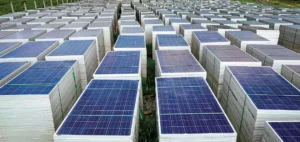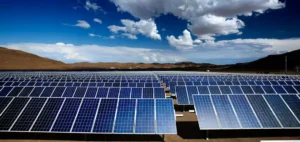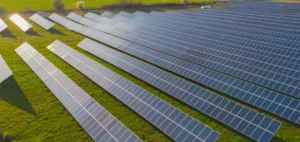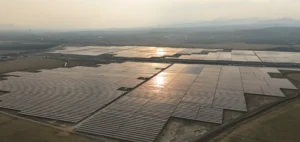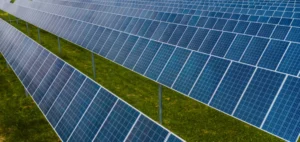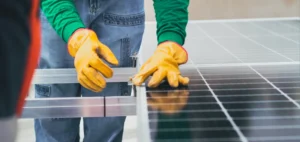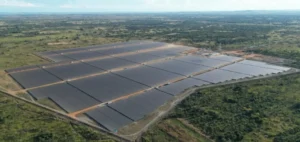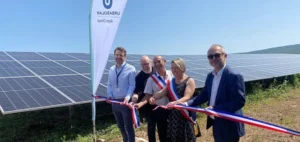Dozens of solar panels lined up on the lake of Tunis: Tunisia is trying, like the rest of the Maghreb, to catch up in the exploitation of this abundant resource in the region.
Faced with a slow development of renewable energies, the surge in hydrocarbon prices that followed the Russian invasion of Ukraine has raised awareness, according to experts.
“The extreme pressure on natural gas, especially in Europe, has changed the logic for this type of investment,” Professor Michael Tanchum, an energy expert, told AFP.
However, “Algeria, Tunisia and Morocco have abundant resources in solar and wind energy,” he said.
Omar Bey, a manager at Qair, a renewable energy producer founded in France, hopes that his prototype 200 KW floating power plant, the first in the Middle East and North Africa, will stimulate more ambitious projects.
Tunisia, with very limited hydrocarbon resources, “has no choice but to bet on renewable energy,” he said.
The advantage of a floating power plant is that it allows for natural cooling of the panels, which makes them more efficient, while reducing evaporation, without taking up any cultivable or buildable land, he explains.
Sunny thousands of hours a year, Tunisia has the potential to produce for its own needs and to export to Europe located a few hundred kilometers away.
But today, only 2.8% of its electricity is derived from renewables, against a target of 35% by 2030.
Political paralysis
Professor Tanchum, a non-resident scholar at the Middle East Institute, explains the delay as a result of “political paralysis,” with a dozen or so governments that have come and gone since the revolution that toppled dictator Ben Ali in 2011. The country is also heavily indebted, which undermines the financing of major programs.
Not to mention the legal and administrative obstacles: imported panels “sometimes remain blocked for a month, a month and a half at customs.
We need more flexible laws, the whole process must be accelerated,” pleads Ali Kanzari, president of the Union of Solar Companies. Mr. Bey refers to “misunderstandings” with trade unionists who, fearing a privatization of the public group Steg, have delayed the connection of photovoltaic plants.
A 10 MW power plant, built more than two years ago in Tataouine (south) to supply 10,000 homes, was put into operation only in October.
“Today, all these problems are behind us,” says Bey. For now, however, “only Morocco has emerged as a leader” in the region, Tanchum said.
The Kingdom, which decided in 2009 to invest heavily in renewables to raise them to 52% of its energy mix by 2030, already produces one fifth of its electricity from this resource.
A total of 111 projects are “completed or under development,” according to the Ministry of Energy.
One of the flagship programs is “X-links” combining solar and wind power, capable of generating more than 10 gigawatts and sending them to Great Britain through 3,800 kilometers of undersea cables, to power 7 million homes by 2030.
Tunisia has embarked on a more modest project: in October, it submitted an application for European aid for a 200-kilometer cable linking it to Italy, a project worth 800 million euros, by 2027.
“If the cable was already in place, with 4 or 5 gigawatts coming from solar power plants in the desert, we would be selling electricity to Europe and we would already be earning significant revenues,” Kanzari laments.
Neighboring Algeria, aware of a possible depletion of its resources, has also set itself the ambitious goal of installing 15,000 MW of solar energy by 2035, including a mega-project of 1 GW (Solar 1000) that will come into service in late 2023 or early 2024.
For the moment, the country is only in its infancy with 3% of its electricity coming from solar.
Despite legislative relaxations, “obstacles remain for foreign investment, including the notorious Algerian bureaucracy,” says Intissar Fakir, an analyst at the Middle East Institute.
Moreover, she notes, even if gas exports generate billions of dollars, Algiers will have to “inject them into the modernization of aging infrastructure in hydrocarbons rather than in renewables.












